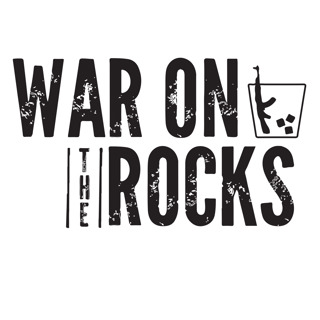
Strategy in Contention: Debating America's Global Priorities
Does the United States need a new playbook — or just fewer plays? In this charged episode, big ideas collide over how to sequence American power across the Middle East, Europe, and the Indo-Pacific. Ryan is joined by A. Wess Mitchell (Marathon Initiative), Stacie Pettyjohn (Center for a New American Security), and Justin Logan (Cato Institute) for a scintillating debate over the future of U.S. strategy.
23 Heinä 52min

How Ukraine is Adapting, Enduring, and Striking Back
Mike Kofman and Ryan brought out the mics to discuss the pressing issues in the war between Ukraine and Russia. They focused on drones, the state of the front, manpower, Putin's approach to Washington, and the contested policies around continued aid from the United States to Ukraine. This episode features meaty excerpts from an episode of The Insider, featuring an interview with Jakub Jajcay talking about his article, "I Fought in Ukraine and Here's Why FPV Drones Kind of Suck" as well as an episode of The Russia Contingency featuring a two part conversation with Stephen Kotkin, the leading historian of Russia and authoritarianism. If these excerpts leave you wanting more, you can listen to them by becoming a member: https://warontherocks.com/membership. Our prices are going up soon so today is the perfect day to join.
9 Heinä 27min

Gen. Donahue on Deterring Russia in Europe
Gen. Christopher Todd Donahue, who leads U.S. Army Europe and Africa as well as Allied Land Command, joined Ryan for a discussion at WOTR HQ. For the first five minutes, they chat about his Army story, his time in the Ranger Regiment, before discussing how the Army Transformation Initiative is unfolding in Europe, from maneuver brigades, new technologies, command-and-control, drone and counter-drone operations, and more. Donahue previews how the U.S. Army has deliberately identified lessons from the war in Ukraine and how the Army fits into the joint fight.
3 Heinä 26min

Introducing "The Iran Reckoning with Afshon Ostovar"
War on the Rocks is launching a new show called "The Iran Reckoning with Afshon Ostovar." It's a members-only show but this first episode is free for all. Join us as renowned Iran scholar Afshon Ostovar takes you inside one of America's most complex and consequential adversaries. In this episode, Ryan introduces you to Afshon and his background (about the first 20 minutes) before discussing the ongoing war between Iran on one side and Israel and the United States on the other, and the unstable ceasefire that we currently find ourselves in. Much like the "The Russia Contingency with Michael Kofman," this show will feature Afshon's discussions with fellow experts and analysts. Become a member today to listen to them all: https://warontherocks.com/membership
26 Kesä 40min

How to Think About the Future of War
Gen. Jim Rainey, the commander of Army Futures Command, joins Ryan to share how emerging technologies are set to transform the way America's soldiers will fight and win. He also shares some key insights about the Army Transformation Initiative.
25 Kesä 31min

Making Professional Military Education More Agile in the Air Force
Lt. Gen. Andrea Tullos joined Ryan at WOTR HQ to talk about her experience and insights into professional military education, both for the joint force and especially the Air Force. She shares what Air University, which she commands, has been doing to optimize its mission for competition with China, the pacing threat, and a high intensity fight where sanctuary areas are scarce if they exist at all. Tullos also explains how Air University and the LeMay Center feed into Agile Combat Employment — the Air Force's vision for rapid, dispersed deployment of combat power to increase survivability and adaptability — as well as Air University's plan for "agile learning." "We as an Air Force, owe you education and training, and so we should be pouring into you episodically and consistently throughout your career. And some of it should be on-demand. We have unbelievably talented, inquisitive learners coming in the door and they shouldn't have to wait to get access to content until they have a certain number of years in service or time in grade. They should be able to go online and access that content at the point of need."
19 Kesä 16min

The Israeli-Iranian War: How We Got Here & What It Means
Israel's strikes against Iran's military and nuclear infrastructure, as well as its key military and security leadership, shocked the world. How did we arrive here? What did the Israeli strikes accomplish? What options does Iran have? How did the Iranian-U.S. nuclear talks fail to forestall this? Will the United States become a party to the conflict? What about the Russian and Iraqi dimensions? Nicole Grajewski of the Carnegie Endowment for International Peace and Rachel Brandenburg of the Israel Policy Forum joined Ryan to answer these questions and more. This episode was recorded the morning of June 17, and events are fast-moving, but this is still worth listening to in order to understand how we arrived here.
17 Kesä 27min

Moving Fast and Breaking Things
"Innovation adoption is a contact sport." As the chief technology officer of the Department of the Navy, Justin Fanelli is one of the leaders responsible for ensuring warfighters have access to bleeding-edge solutions. Listen to his conversation with Ryan Evans, recorded live at an event in Washington, DC — our first episode of Cogs of War, a new vertical on defense tech and the defense industry brought to you by War on the Rocks and supported by Booz Allen Hamilton. Subscribe to the Cogs of War feed on Spotify, Apple Podcasts, or your podcast player of choice today.
3 Kesä 23min






















